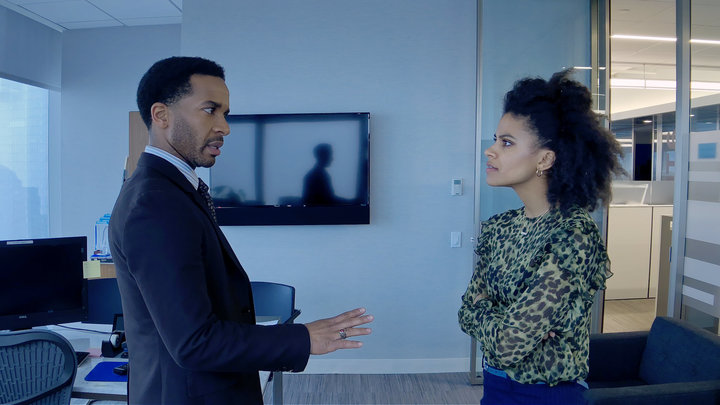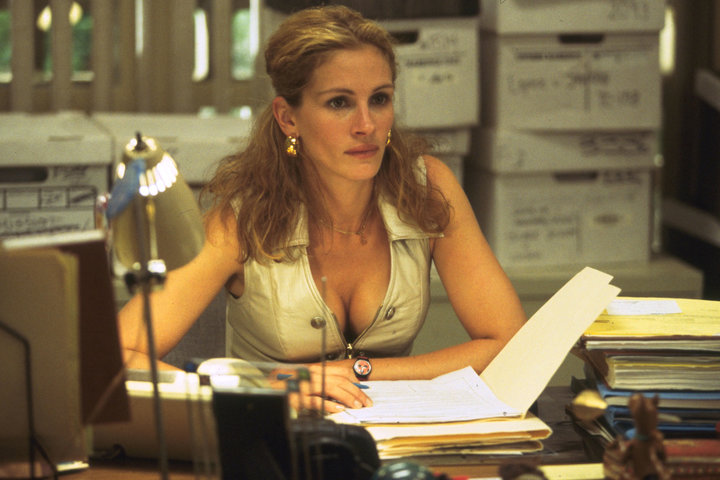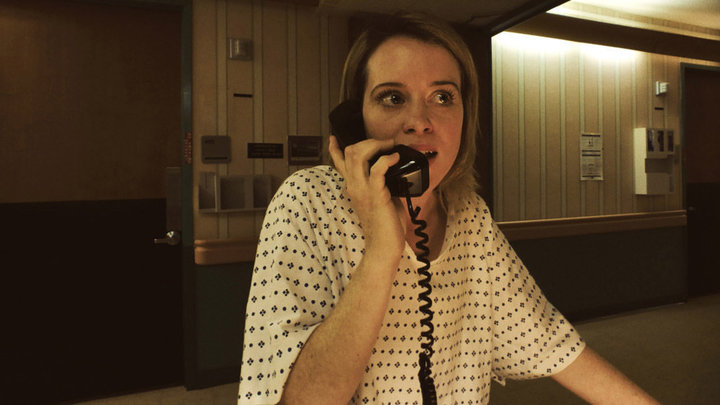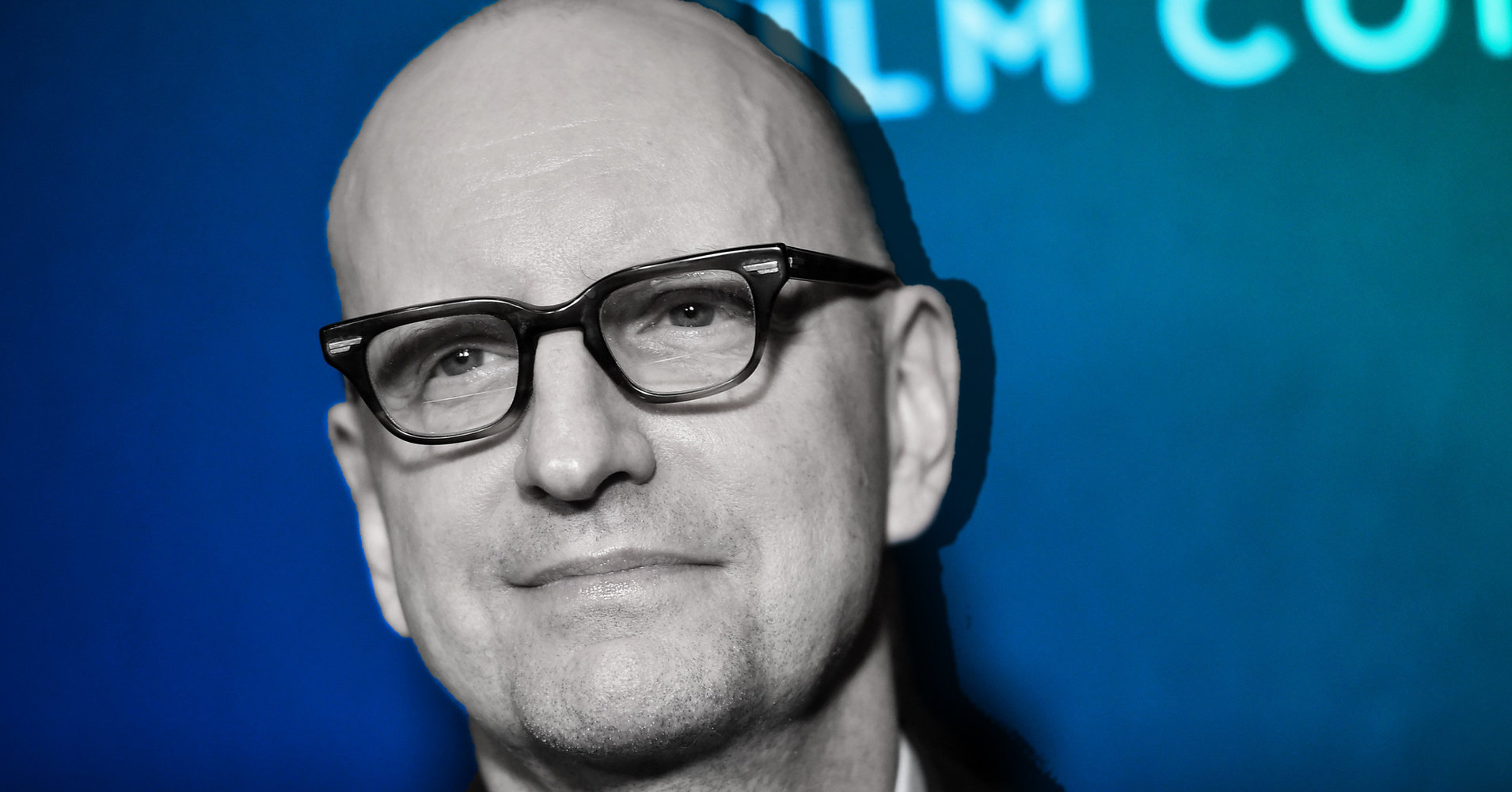[ad_1]
Trace a director’s work for enough years, and eventually a theme emerges. Steven Soderbergh’s is power. More specifically, upending the structures that give authority figures disproportionate advantages ― a fitting snapshot of his own career, in which Soderbergh has exacted a one-two punch: becoming one of America’s most famous filmmakers and defying the Hollywood ecosystem that won him such an honor.
Soderbergh’s newest movie, “High Flying Bird,” is a distillation of that legacy; it is, in an unassuming way, everything he’s been working toward since his 1989 breakthrough “Sex, Lies, and Videotape.”
“I’m clearly interested in characters who think, by force of will, that they can alter the universe that they’re operating in,” the 56-year-old Soderbergh recently told me during a wide-ranging conversation at a Manhattan hotel. “That’s usually a delusion.”
In this case, the force of will belongs to Ray Burke (the great André Holland), a respected sports agent embroiled in a monthslong NBA lockout that has halted his industry’s cash flow. Ray seizes the moment, seeing it as a way to return control to “those behind the ball instead of those up in the skybox.” He wants to shift basketball’s foundation to give players more financial agency so they aren’t just cogs in a machine, baited by wealthy owners who treat them as human capital.

Soderbergh’s characters have butted up against the status quo time and again. In “Out of Sight,” a career criminal (George Clooney) escapes incarceration. In “Erin Brockovich,” a hard-up single mother (Julia Roberts) without any legal training exposes a natural-gas company’s hazardous lies. “Traffic” tracks the government’s draconian drug laws from Washington to Tijuana and from the suburbs to the inner city. The “Ocean’s” trilogy hijacks the ritzy Las Vegas casinos that take in unworldly sums of money. Then there’s his two-part Che Guevara biopic. And Matt Damon as a corporate whistleblower in “The Informant!” There’s Liberace, played by Michael Douglas in “Behind the Candelabra,” living an opulent gay lifestyle at a time when that was taboo. Out-of-work dimwits staging an elaborate heist in “Logan Lucky.” An abuse survivor with PTSD (Claire Foy) who can’t find help after being committed to a mental institution against her will. And now Ray Burke bucking a multibillion-dollar institution that commodifies young black upstarts.
“There’s something inside homo sapiens that lights up when certain kinds of power is expressed,” Soderbergh said when I asked him about this fixation of his. “There’s clearly some kind of dopamine hit that takes place when somebody feels dominant. It’s something that served us well on the savannas of Africa before we could talk or write and there were threats all over the place. At that point, being ruled by your amygdala was what kept you alive. … It’s distressing to know that since we’ve been able to talk and make things and write, we’ve been in a perpetual state of war with each other. Why?”
Power dynamics can turn the less privileged (or simply the less agreeable) into the Other, Soderbergh explained. Even someone of means who tries to provoke change, like Ray in “High Flying Bird,” can find himself stymied by profit-hungry forces with more leverage ― in this case, a union honcho (Sonja Sohn), a boss (Zachary Quinto) who freezes Ray’s salary, and the owner (Kyle McLachlan) of the team that Ray’s hotshot client (Melvin Gregg) is about to join.

Soderbergh’s pet interest squares with the narrative that synthesizes his career. He has built a reputation as someone who detests the Tinseltown system, wherein studios often stifle directors’ control and refuse to take risks. A GQ headline from 2017 read, somewhat hyperbolically, “Steven Soderbergh Is Back to Destroy Hollywood.” And while Soderbergh, a cisgender white man, has undeniably been granted more chances to fail than his female peers ― after “Sex, Lies, and Videotape” turned him into an overnight indie superstar, he made five consecutive flops before “Out of Sight” put him back on the map ― he has nevertheless demonstrated a resourcefulness that sets him apart from most directors. He didn’t wait for the system to undergird him; he simply refurbished it to meet his creative needs, whether that meant distributing films through video-on-demand before doing so was trendy, vocally questioning Hollywood’s accounting practices, or creating a company that aimed to streamline the flow of money from production to exhibition.
“I’m a gnat on the ass of the industry in that context,” he said.
Sometimes that gnatlike tendency has been more volcanic. Three days before he was set to begin filming “Moneyball,” another movie about the business of sports, Sony Pictures executives fired Soderbergh because they wouldn’t agree to his script revisions. He wanted to intermix commentary from real baseball players to give the film a documentary quality ― a technique he instead employs in “High Flying Bird,” which also defies tradition because it was shot on iPhones (like last year’s “Unsane”) and debuted on the theater-busting platform Netflix (like Soderbergh’s next film, “The Laundromat,” about journalists unearthing politicians’ tax-evading secret bank accounts).

In his eyes, however, “Moneyball” was about data, whereas “High Flying Bird” is about “the commoditization of athletes, particularly black athletes.” The conceit stemmed from a conversation with Holland, who starred in Soderbergh’s underappreciated Cinemax series “The Knick,” about baseball’s racial integration in the 1940s, which put players of color in the hands of white management.
“So, social progress on the one hand, huge economic downside on the other,” Soderbergh said. “That was something that André had been thinking about, and was wondering if there was a project there. … Then we started talking about, ‘Let’s come up with a contemporary issue that is focused on the experience of African-Americans in sports. … What if, today, we were six or nine months into a lockout ― and if somebody decided, in the midst of that, to take provocative action, what kind of forces would be motivated to counter that?’”
With “High Flying Bird,” which has garnered sterling reviews for its rapid-fire dialogue and slick heist sensibilities, Soderbergh gets to marry all of his iconoclastic instincts. He’s told a story about power using an unconventional camera and a streaming service that flouts the way most movies are released. Things don’t get more Soderberghian than that.
“The economic forces at play in the traditional studio system generate a lot of fear,” he said, “because it’s a terrible paradigm, and fear is just not a good bedfellow for rational conversation.”
“High Flying Bird” is now available on Netflix.
[ad_2]
Source link

